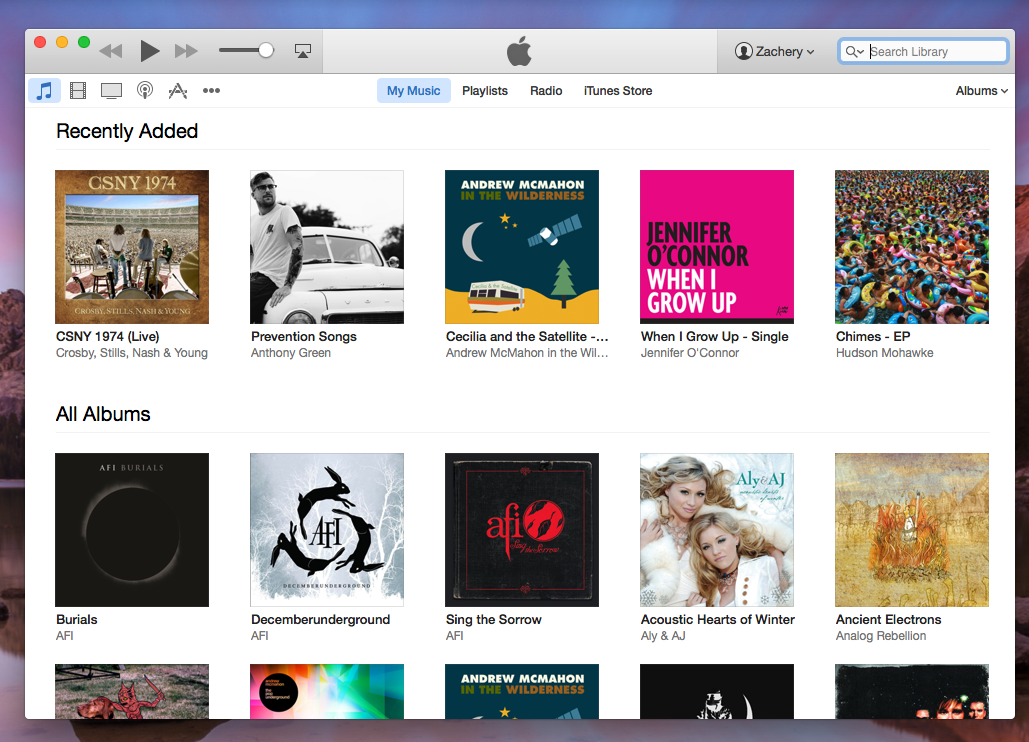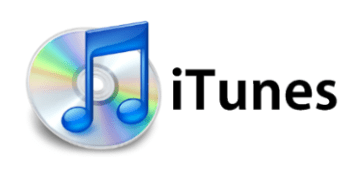The first release of the new OS — Mac OS X Server 1.0 — used a modified version of the Mac OS GUI, but all client versions starting with Mac OS X Developer Preview 3 used a new theme known as Aqua. Aqua was a substantial departure from the Mac OS 9 interface, which had evolved with little change from that of the original Macintosh operating. Apple is nixing the iTunes app in the next version of its Mac software, which launched on Monday. With macOS Catalina, the contents of iTunes will now be split up between three apps: Apple Music. Mac; iPad; iPhone; Watch; TV; Music. ITunes 11.4 for OS X 10.6. ITunes 11.4 now supports the ability to sync your favorite music, movies, and more to devices.
ITunes 8.2.1 - Last version to support G3 Processors (2009) iTunes 9.1.1 - Last version to unofficially run on G3 Processors under Tiger (2010) iTunes 9.2.1 - Last version to support Mac OS X 10.4.11 Tiger (2010). Yes, the app named iTunes that we’ve been using on our Mac for nearly two decades is no more. When you upgrade to macOS 10.15 Catalina, you won’t find an iTunes app anywhere.
This tip is designed to be a one stop shop to find out what iOS you can use if you are able to install a specific Mac OS X.
Now updated for iOS 13. Including a method to downgrade to iOS 10.3.3, and a method of downgrading to iOS 11.4.
On September 19, 2019, iOS 13 was released. Present requirements for iOS 13 include Mac OS 10.11.6 for iTunes 12.8 as a bare minimum.
Two factor authentication logins for AppleID unlocks was introduced on Mac OS 10.12.4. If your iOS is current for it, you can usually use it to unlock either from another current iOS device, or http://iforgot.apple.com if you don't have a Mac.

On May 29, 2019, it was found that iOS 12.1.5 could sync with iTunes on Mac OS X 10.10.5 if you kept iTunes 12.5.5.
This thread discusses more of the inconsistent requirements that were initially stated:
https://www.imobie.com/support/how-to-downgrade-from-ios-12-to-ios-11.htm offers a means of downgrading from iOS 12 to iOS 11, if no other means work to link an elderly Mac that can't be updated to 10.11. Be very careful to backup your data properly to avoid problems. Consider a lightning port data transfer device if you need to backup data. And remember no backup is complete, unless you know you have two working copies.
Downgrading Mac OS X is possible in many cases, but your iOS is not at all. Downgrading a Mac is described here:http://discussions.apple.com/docs/DOC-1948
iOS 12 & Yosemite -is a new tip I constructed to cover what can be done for those with Yosemite when downgrading the iOS is no longer possible.
For iOS earlier than 5, see this tip:Which OS do I have and where should I post?So be sure to look this over before upgrading your iOS and backup/sync your iOS with your Mac:
Itunes Mac Os X 10.8.5
Mac OS X 10.5.8 (Leopard) supports PowerPC Macs, iTunes 10.6.3, iOS 5.1.1.Mac OS X 10.6.8 (Snow Leopard) supports Intel only Macs, but does support PowerPC applications, iTunes 11.4 and iOS 6, and iOS 7.Mac OS X 10.7.3 (Lion) supports iCloud except for iCloud Drive in its current iteration and the new Notes.Mac OS X 10.7.5 (Lion) (link explains the pitfalls of losing PowerPC applications) supports iTunes 12.2.2.25 (available from Software update as of 10/24/2015), iOS 8 and iOS 9.0.Mac OS X 10.8 (Mountain Lion) is required for iTunes 12.3 and iOS 9.2 and iOS 9.2.1(except iCloud Drive, and the new notes). Does not support iOS 10 or iTunes 12.5.1 according to the Wikipedia below.Mac OS X 10.9.5 (Mavericks)one user has said is required for iOS 10 and iTunes 12.5. It is though unable to sync with iOS 11.Mac OS X 10.10 (Yosemite) is required minimum for the new iCloud Drive and iOS 11 (except for Notes, which requires El Capitan). iTunes 12.7.0.166 is needed for iOS 11.iTunes 12.8 is now available for 10.11.6 and later. I have waited for any confirmation of working 10.10.5 systems and it appears the system requirements are in error on the website for linking to iOS 12.
Mac OS X 10.11 (El Capitan) is required for the new Notes on iOS 9, and 10.11.6 for the iPhone XR, XS, and iOS 12 and is compatible with all Mac OS X 10.8 and later compatible Macs. It is available for download only for Macs with 10.6 installed and updated to 10.6.8.
Mac OS 10.12 (Sierra) currently has no special requirements as of September 23, 2017, however is a free path to upgrade from Macs that shipped with Lion, that upgraded to 10.7.5 or later, and then updated to Sierra to be able to synchronize with iOS 12.
iOS 12 was released September 17, 2018. Please make sure to backup your data on your iphone, ipad, or ipod touch and not apply any update until you are certain that iTunes on your Mac or PC can handle it.
Some may find running Windows on their Mac Running Windows on a Mac, and Connecting it to Macor creating a separate partition for a newer Mac OS How to format a drive, or disc for maximum portability?allows one to sync to a newer iOS without losing compatibility of older Mac OS versions.
Stuck in Mavericks, Mac OS X 10.9.5? There is a published way to downgrade your iOS.
Note: this is not for the faint at heart, but sure is better than having to upgrade your Mac OS X prematurely for an App you can't afford upgrading on your Mac.
The last iOS supported for various iDevices is listed on the table called 'Terminal update for' on:https://en.wikipedia.org/wiki/IOS_version_history

And many of the latest iOS versions and iTunes support are on https://en.wikipedia.org/wiki/History_of_iTunes
Notes: Upgrading to 10.7 and above, don't forget Rosetta! and High Sierra upgrading tipoffer two means of getting your Mac up to speed with iTunes 12.8. Use the first tip if running 10.6.8 or earlier to get to 10.11. And use the other tip if running 10.8 or later.
You might have read a headline or 30 this week proclaiming the death of iTunes. It certainly seemed like that was the case; during the WWDC19 keynote, Apple VP Craig Federighi skewered the longtime media app for doing too much and announced it was breaking up into separate TV and Music apps. Short of holding an iOS 9-style funeral, Apple eliminated the iTunes app from the Mac and shuffled its functionality to new apps and menus.
How does it all work? And is iTunes really dead? Get the answers to those and any other question you may have in this FAQ.
Is iTunes really gone?
Yes, the app named iTunes that we’ve been using on our Mac for nearly two decades is no more. When you upgrade to macOS 10.15 Catalina, you won’t find an iTunes app anywhere.
Where did all my stuff go?
In place of iTunes will be new apps: Music, Podcasts, and TV. If they sound familiar, it’s because you’ve seen them everywhere but your Mac: iPhone, iPad, and Apple TV. Apple is simply bringing those apps to the Mac. Now your entire purchases and ripped music library and playlists will be in Music and your Movies and TV Shows libraries will be in TV. Podcasts will be in Podcasts. And audiobooks will move over to the existing Books app.
Do I need to do anything to transfer my libraries?

You shouldn’t. MacOS Catalina will do all of the heavy lifting to migrate your libraries to the appropriate places.
Itunes Mac Os X 10.5.8
Will I still be able to rip songs off a CD?
How To Uninstall Itunes Mac Os X
All of the things you did before in iTunes should work just fine in the new Music app, including iTunes Match and purchases, as well as any new or old ripped CDs.
How do I buy new stuff now?
Here’s where it gets a little confusing. While purchases are done in the appropriate app (music in Music, movies and TV shows in TV, and audiobooks in Books), the purchase process is a bit different. The TV app has separate Movies and TV Shows tabs at the top of the screen that will function much like iTunes does now, spotlighting deals and new content, and letting you browse through the entire catalogue. When you want to buy or rent something, click the buy link and it’ll be transferred to your library. The same goes for
Music is a little different. Since Apple offers a streaming service, that takes center stage, with everything else populating a sidebar like the current iTunes app. Inside there you’ll find an old friend: the iTunes Store. Click on it and you’ll be find a store that looks a lot like the current one.
Wait, so iTunes isn’t dead then?
Well, iTunes is, but the iTunes Store isn’t. It’s just returning to what it was before Apple started selling other kinds of media.
Itunes Mac Os X 10.5.8
What if I’m an Apple Music subscriber?
Apple Music subscribers will find everything in the Music app, of course. They’ll also still see the iTunes Store option in the sidebar, but they can opt to hide it if they’d like.
How do I manage my iTunes account?
Managing your iTunes account works pretty much the same way as it does now. Each of the media apps will have an “Account” menu in the top bar, where you’ll find the usual options: Authorizations, Sign Out, etc. Click on View My Account and you’ll be taken to your usual account page, where you can update your credit card info and address, and see your purchases.
Itunes Mac Os X 10.6
How do I manage my subscriptions?
Subscriptions are currently handled inside your Account page in the Mac App Store, so that shouldn’t change.
Will be iTunes gift cards still work?
Yes! Apple says that iTunes Gift Cards and iTunes credits “will be maintained and can be used with the new apps and the App Store” as before. So it appears that Apple will continue to sell iTunes gift cards for the foreseeable future.
How do I sync my iPhone or iPad to my Mac for backups?
If you use your Mac for iTunes backups, you’ll no longer need to launch an app to when you plug in your iPhone or iPad. Instead, you device will appear in a new sidebar item in Finder windows, which will contain all of your previous backups and sync settings as before. Apple also says it will now be “easier to drag and drop files you want to transfer” since you’ll already be inside the Finder.
What if I don’t (or can’t) update my Mac to Catalina?
Apple is billing the new media apps as a Catalina feature, so presumably older Macs will stick with iTunes for the foreseeable future. It’s possible that Apple sends out a future update to older version of macOS that deprecates iTunes, but that hasn’t been announced.
